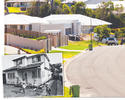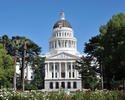Washington Policy Center asked national transportation expert and urban policy analyst, Wendell Cox, to evaluate transportation planning in the Puget Sound region. Where do people choose to live, where do they choose to work, and how do they choose to travel? Does our regional transportation plan and subsequent spending by public officials reflect reality, or wishful thinking? These were just a few of the questions I had for him. read more »
Suburbs
New WPC Study: Expanding Seattle's Transit-Heavy Approach Will Not Improve Region's Quality of Life
- Login to post comments
Stomping On the Suburbs
Our way of life is a miracle for this kind of world, and … the danger lies in thinking that of it as ‘natural’ and likely to endure without a passionate determination on our part to preserve and defend it.” — W.V. Aughterson, The Australian Way of Life, 1951
For generations, Australia has enjoyed among the highest living standards in the world. The “Australian dream”, embodied largely by owning a single-family home with a small backyard, included well over 70 per cent of households. read more »
- Login to post comments
Democracy is For the Dogs
With a new round of state and local elections just around the corner, I am regularly asked about what brings Americans out to the polls and helps them politically engage them with their communities. read more »
- Login to post comments
Forced Upzoning is Bad Policy, But Here's How We Can Mitigate its Impacts
A number of bills in the legislature would attempt to “solve” the state’s housing challenges by overriding local municipal zoning ordinances and statutorily allowing developers to build up to Sacramento-mandated levels of density. The most notable of these bills is SB50, which has no provisions to make any of the housing built affordable, but espouses a “trickle-down” theory which suggests that market-rate (i.e. luxury) housing will “filter” down to create more affordable housing. read more »
- Login to post comments
Three Studies That Show Density Doesn't Determine Car Travel
Recent research sheds new light on the critical issue of the link between car travel and urban density. Conventional planning wisdom has it that increasing development density bestows benefits, most importantly that of reducing driving. This effect seems almost self-evident: more compaction, shorter distances, lower VMTs. Peter Newman and Jeffrey Kenworthy’s (1989) Cities and Automobile Dependence reinforced this intuitive assumption with their extensive and in-depth study (1986) which effectively sealed the case for thirty years. read more »
- Login to post comments
Organic Urbanism is the Cure for New Urbanism
New Urbanism is like a virus. For 50 years it keeps coming back in mutated forms. It needs a cure. read more »
- Login to post comments
Of Niche Markets and Broad Markets: Commuting in the US
The six transit legacy cities - mostly urban cores that grew largely before the advent of the automobile - increased their concentration of transit work trips to 57.9% of the national transit commuting, according to the 2018 American Community Survey. At the same time, working at home strengthened its position as the nation’s third leading mode of work access, with transit falling to fourth. The transit commuting market share dropped from 5.0% in 2017 to 4.9% in 2018. read more »
- Login to post comments
Younger Americans Don't Hate Suburbia
As a college professor who teaches courses about politics and geography at an extremely progressive liberal arts college, my students regularly want to talk about the narratives surrounding deep urban-rural divides which routinely make the news or the seemingly endless stories abound about urban renewal and its proclivity read more »
- Login to post comments
2018 Commute Data
The Census Bureau released data from the 2018 American Community Survey last week, and the big news is its finding that income inequality has worsened. America's transit agencies contributed to that problem as they continue to build expensive transit systems into wealthy suburbs while they cut service to low-income neighborhoods. read more »
- Login to post comments
Moving Into Your Socialist Home
“Housing is a human right,” asserts Oregon’s U.S. Representative Earl Blumenauer in a paper titled Locked Out: Reversing Federal Housing Failures and Unlocking Opportunity.” That’s debatable, but if Blumenauer really believes it, then why does he support Oregon’s land-use laws that heavily restrict suburban development? After all, that’s the only kind of housing development that is truly affordable. read more »
- Login to post comments






















